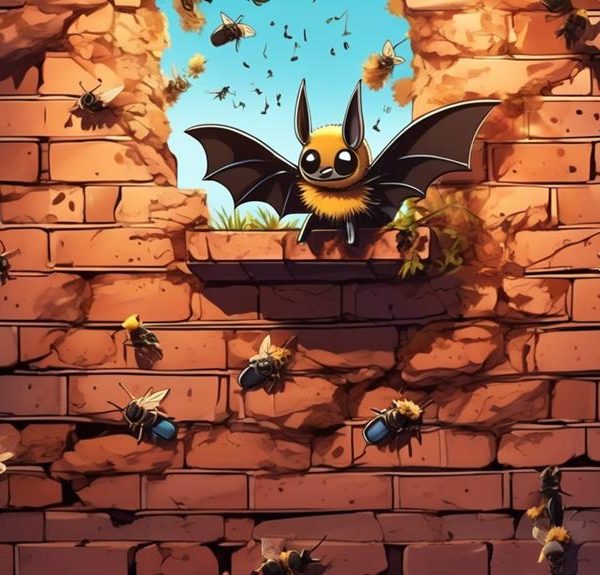Feeding mason bees sugar syrup could be beneficial or harmful; unravel the mystery of their unique dietary needs.
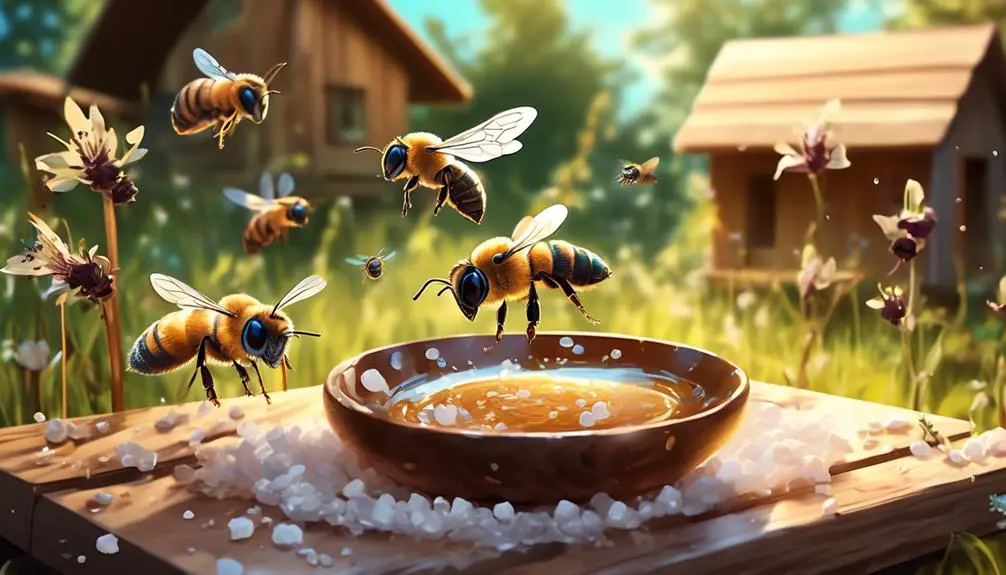
Can You Use Sugar Syrup to Feed Mason Bees?
As you watch the sun rise, casting a golden glow over your garden, you spot a mason bee buzzing around, its iridescent wings catching the early morning light. You wonder, can you use sugar syrup to feed this industrious creature?
After all, it's common knowledge that honey bees are often fed sugar water. But mason bees aren't honey bees, they're solitary bees with a unique set of dietary needs. What if sugar syrup isn't beneficial for them, or worse, could it even be harmful?
To understand the full impact of this decision, it's crucial to explore the intricacies of a mason bee's diet.
Key Takeaways
- Mason bees primarily feed on a mixture of nectar and pollen, which provides necessary nutrients for their growth and development.
- Sugar syrup can be used as a supplementary food source for mason bees, as it closely mimics the nectar of flowers and provides a concentrated source of carbohydrates for energy.
- Feeding mason bees with sugar syrup has pros such as convenience, availability, and support during times of scarcity, but it also has cons like potential reduction in foraging behavior and lack of nutrients compared to natural nectar and pollen.
- There are alternative feeding methods for mason bees, such as pollen supplements, bee bread, and honey-based syrup, each with their own benefits and drawbacks.
Understanding Mason Bees' Dietary Needs
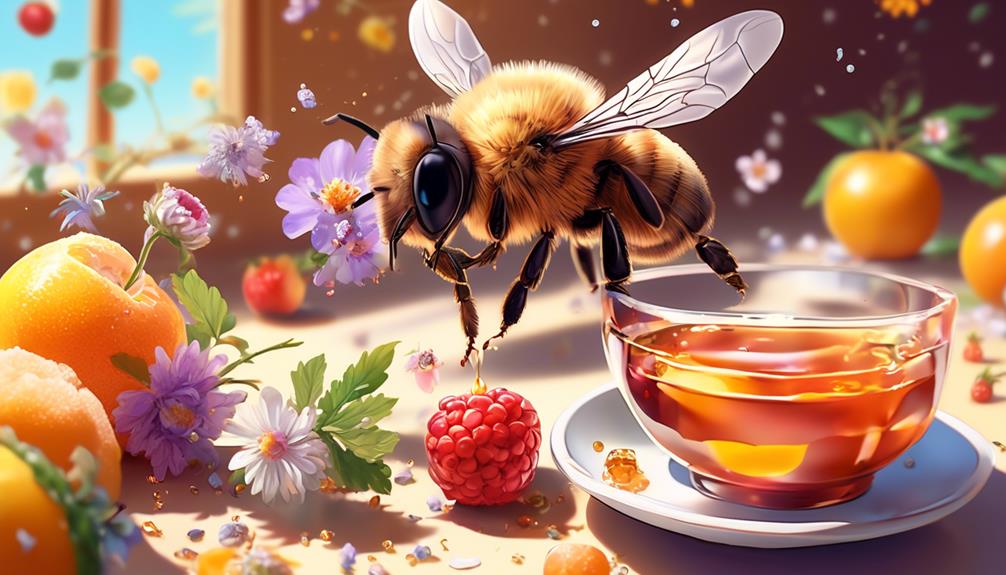
To fully appreciate the importance of feeding mason bees with sugar syrup, it's crucial to understand their unique dietary needs. Unlike honey bees, mason bees don't produce honey or beeswax. They're solitary creatures, typically laying their eggs in hollow stems or holes in wood, hence their name.
In the early stages, mason bee larvae primarily feed on a mixture of nectar and pollen, which the adult bees gather and store. This food source is rich in proteins and sugars, providing the necessary nutrients for healthy growth and development. However, in times of scarcity, such as during poor weather conditions or when food sources aren't readily available, it becomes necessary to supplement their diet.
This is where sugar syrup comes into play. It's a readily available, easy-to-make food source that can help sustain mason bees during tough times. But it's not just any sugar syrup. The ideal syrup for mason bees should closely mimic the sugar content of nectar. Therefore, it's recommended to use a 1:1 ratio of sugar to water.
Providing this supplementary food source can help ensure the survival and health of these beneficial insects.
The Science Behind Sugar Syrup
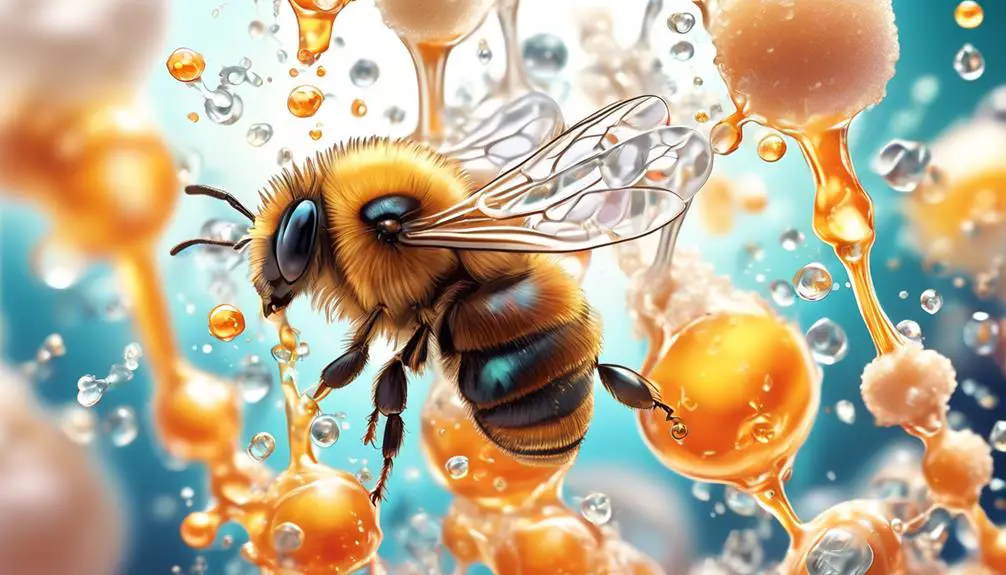
Delving into the science behind sugar syrup, you'll find it's more than just a sweet treat for mason bees; it's a lifeline that can be the difference between survival and demise. Sugar syrup, typically a mixture of sugar and water, closely mimics the nectar of flowers, a primary food source for these bees. It's a concentrated source of carbohydrates, providing the energy they need for flight and other daily activities.
The sugar in the syrup, sucrose, is a disaccharide composed of two simpler sugars, glucose and fructose. These are easily digestible, allowing bees to quickly convert them into energy. This is crucial during colder months when flower nectar is scarce. However, it's important to note that sugar syrup lacks the proteins, vitamins, and minerals found in natural nectar.
It's also worth considering that not all sugars are equal for bees. Honeybees, for instance, can't digest certain sugars like lactose and maltose. Similarly, mason bees might struggle with certain types of sugar. So, while sugar syrup can be a useful supplement, it shouldn't replace a diverse diet of flower nectar and pollen.
Feeding Mason Bees: Pros and Cons
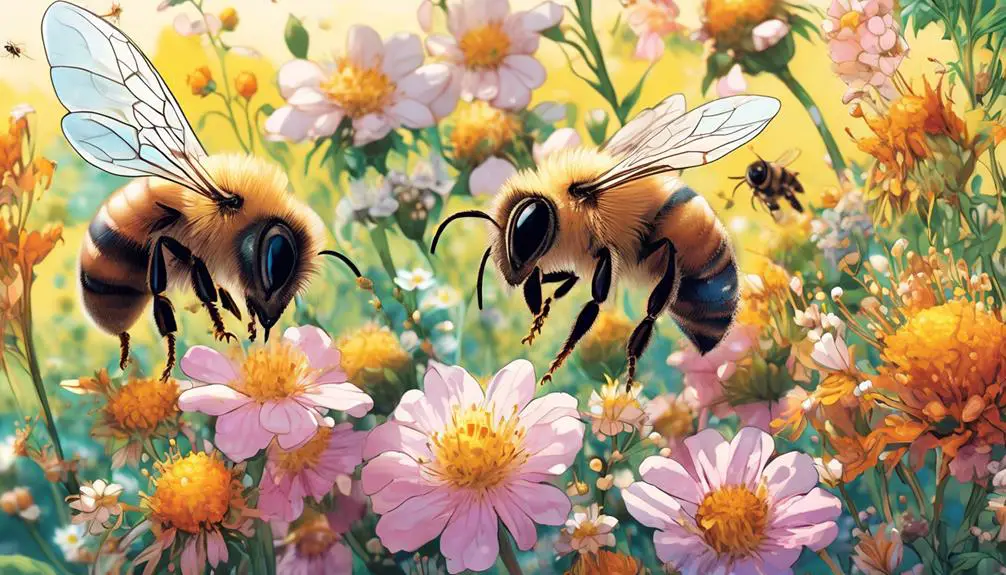
When it comes to feeding mason bees with sugar syrup, there are both advantages and disadvantages that you should consider.
Let's discuss the pros first. Sugar syrup can be a convenient and readily available food source, particularly in early spring when natural nectar sources might not be abundant. It also allows you to control the food's cleanliness, reducing the risk of disease transmission that can occur in wild nectar sources.
However, there are also cons to consider. Feeding bees with sugar syrup can make them dependent on it, potentially reducing their foraging behavior. It also lacks the nutrients found in natural nectar and pollen, which could negatively impact the bees' health and reproduction.
Here's a summary in a simple table:
Pros | Cons |
|---|---|
Convenient and readily available | Can reduce foraging behavior |
Control over cleanliness | Lacks nutrients |
Can support bees in early spring | Can make bees dependent |
Alternatives to Sugar Syrup
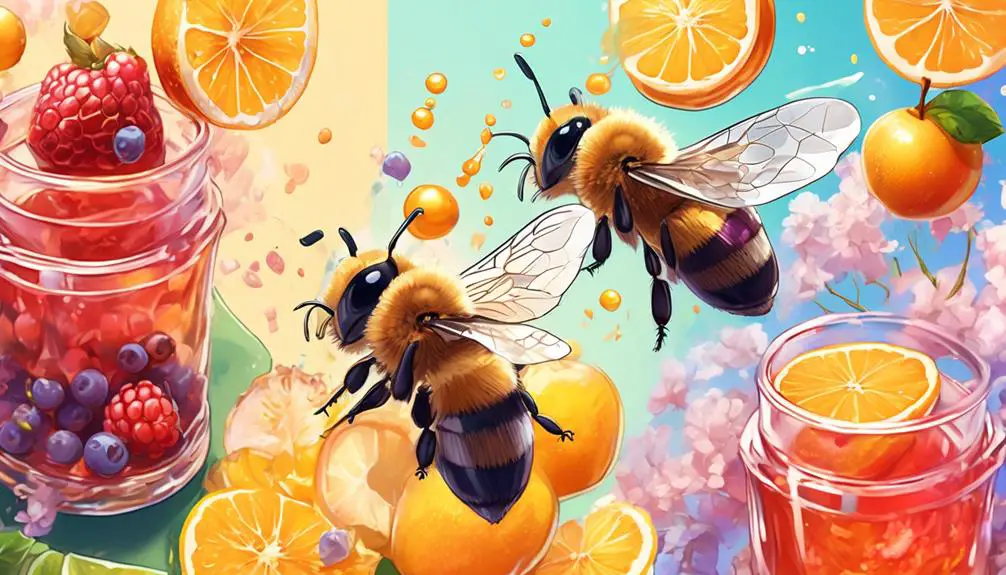
While sugar syrup can serve as a quick and easy food source for mason bees, there's a variety of alternative feeding methods you might want to consider, each with their own benefits and drawbacks.
One option is to use a pollen supplement. Mason bees need pollen for protein, and a quality supplement can mimic the nutritional content of natural pollen. However, it's important to note that supplements can't fully replace the diverse diet bees get from foraging.
Bee bread, a mixture of pollen and nectar, is another alternative. This is closer to the bees' natural diet, but it can be harder to source and store.
Lastly, you could consider using a honey-based syrup. Honey is a natural product from bees and therefore contains many of the nutrients they need. However, it's crucial to use raw, unpasteurized honey to avoid potential harm to the bees.
Proper Care for Healthy Mason Bees
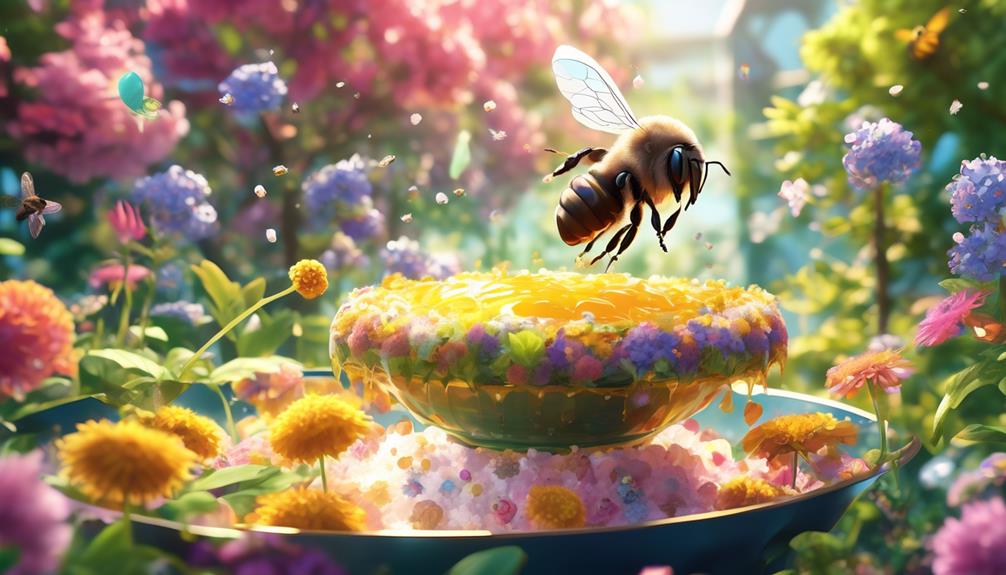
To ensure your mason bees thrive, it's essential to understand and implement proper care practices. These practices include providing appropriate shelter, maintaining optimal temperatures, and managing potential threats such as parasites and predators.
When considering shelter, you'll want to offer a variety of options. Hollow reeds and drilled blocks of untreated wood serve as ideal nesting sites. You should place these in a sheltered spot, preferably facing the morning sun to encourage early activity.
Temperature, too, is crucial. Mason bees are cold-hardy, but it's beneficial to keep them in an area where the temperature stays between 21-29°C. Too hot or too cold, and you risk harming the bees or hindering their productivity.
Lastly, ward off potential threats. Parasitic mites can infest the nests and weaken or kill your bees. Regularly inspect the nests and clean or replace them as necessary. Similarly, birds and other predators pose a risk. Protective measures, such as netting or placing the nests out of reach, can mitigate these threats.
With these steps, you'll not only promote the health and productivity of your mason bees but also contribute to the overall well-being of your local ecosystem.
Conclusion
So, can you feed mason bees sugar syrup?
Sure, but it's not their preferred diet. While they'll accept this sweet concoction, it lacks the essential nutrients found in nectar and pollen. Plus, it could potentially harm their health.
It's best to provide them with natural food sources or a high-quality bee feed. Remember, proper care and nutrition are key to keeping your mason bees buzzing healthily and happily.


